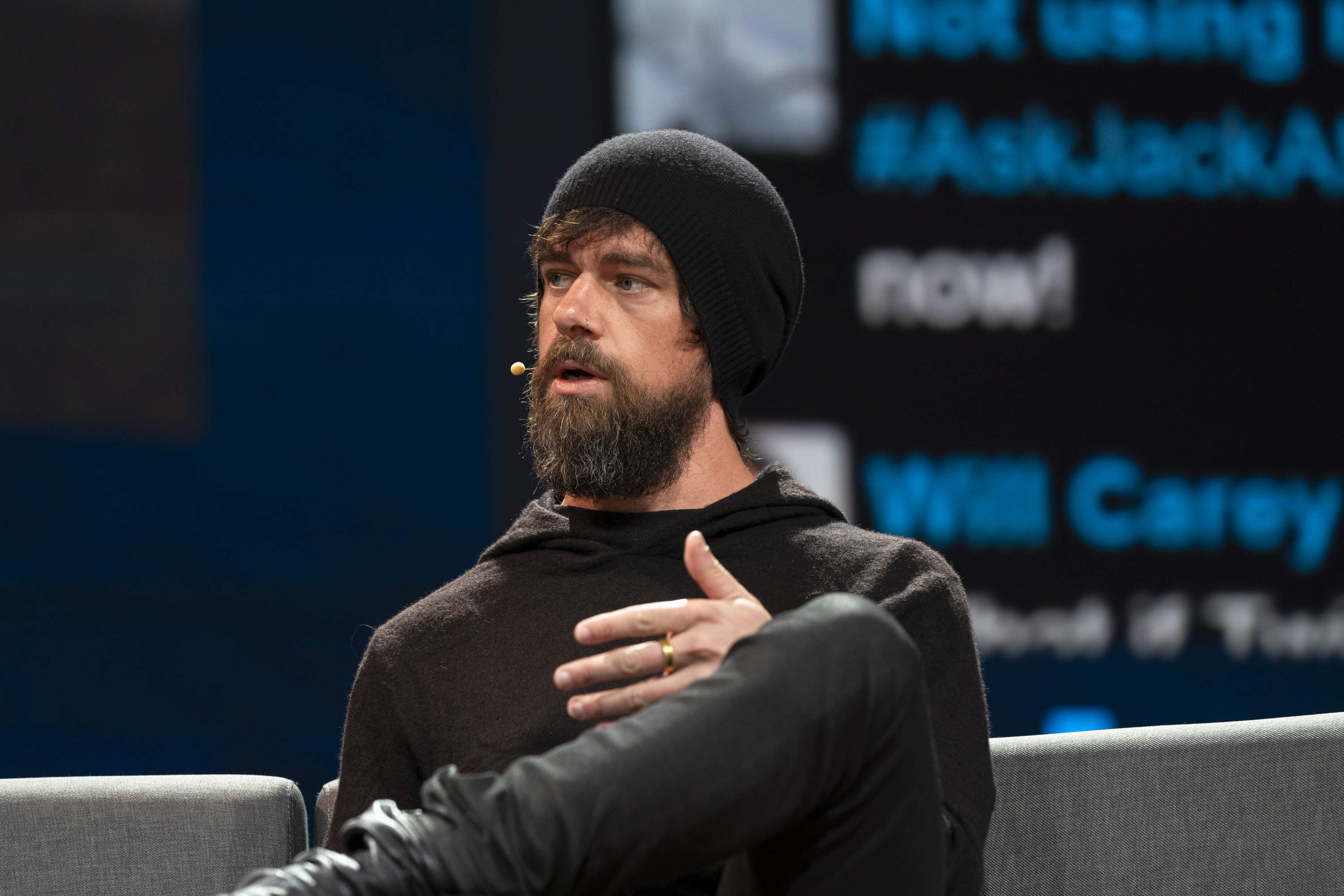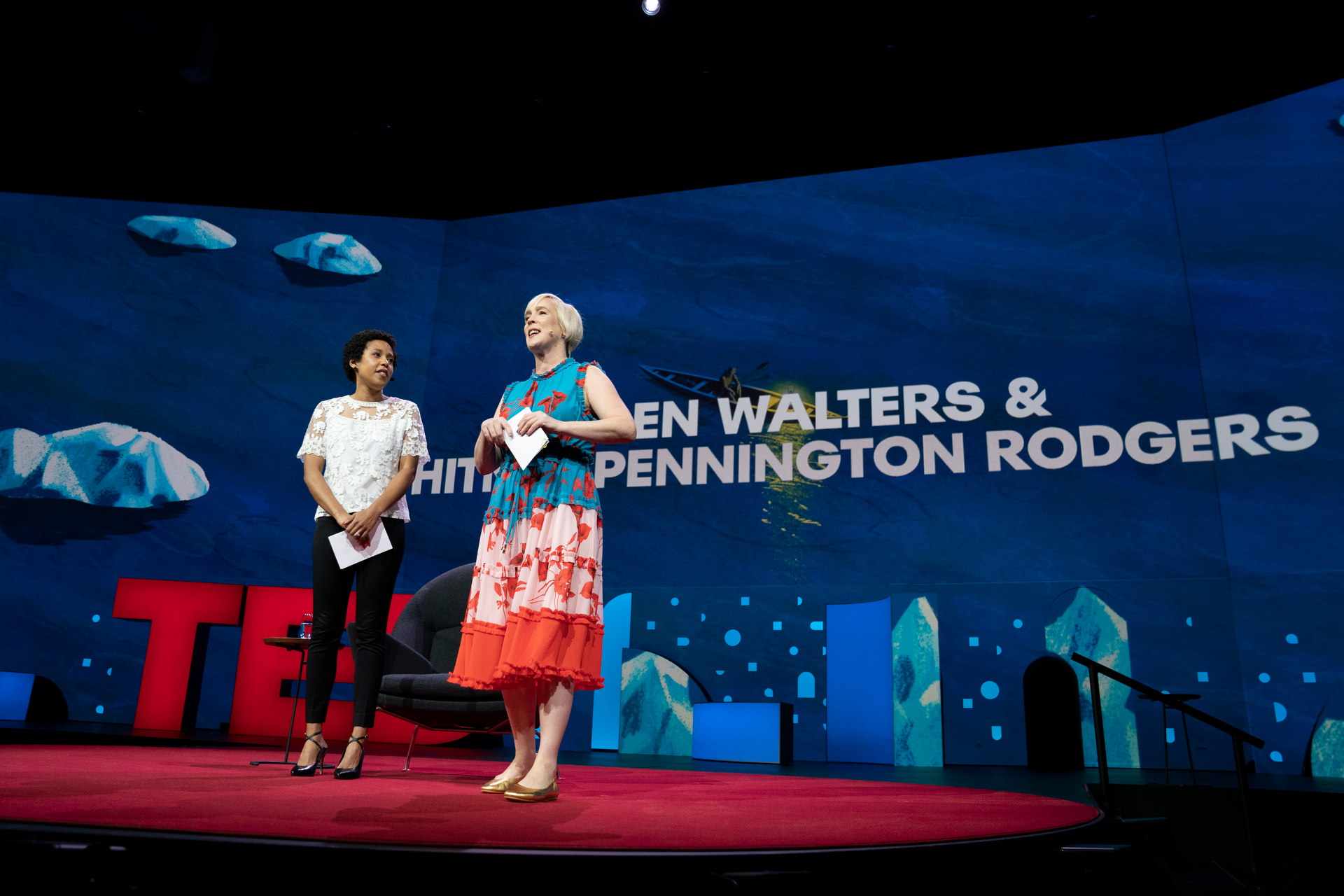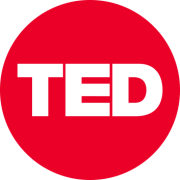https://blog.ted.com/power-notes-from-session-2-of-ted2019/
- |
Power drives everything. Whether it’s political, economic, online — power makes the rules and makes things move. At Session 2 of TED2019, we explore how different centers of global power are dramatically playing out across the world stage.
The event: Talks and performances from TED2019, Session 2: Power, hosted by TED’s Chris Anderson and Whitney Pennington Rodgers
When and where: Tuesday, April 16, 2019, 8:45am, at the Vancouver Convention Centre in Vancouver, BC.
Speakers: Rafael Casal, Jack Dorsey, Adena Friedman, Peter Beck and Julius Maada Bio
The talks in brief:
Rafael Casal, poet, filmmaker, actor (you know him from Blindspotting), activist, incorrigible Tweeter
- Big idea: Online protest travels fast. Justice can be delivered quickly — but the argument can also quickly devolve into a loud, angry mess. How do we mix activism and nuanced debate?
- How? Rafael Casal tells the cautionary tale of a 2016 Twitter firestorm he helped spark. The hashtag he started — #MakeRoomForOak, a campaign for the actor Oak Onaudowan, who was asked to step down as the lead of a new Broadway show — blew up, kicking off a debate about representation and diversity in the arts. But within a week, the hashtag turned into an ugly shouting match, coopted by misinformation, threats and abuse. This, says Casal, is part of a massive cultural shift in what activism looks like. We’re still on the social media learning curve, and, sure, the nuance gets lost sometimes. But these debates are bringing long-unheard issues to center stage — and making impact. It’s on us to keep failing loud, teaching others to succeed and steadily arriving at justice.
- Quote of the talk: “Our messy moments online are not just a mess, but evidence of work being done to protest the injustices that are long overdue for some volume.”
Jack Dorsey, CEO of Twitter, CEO and chair of Square, and a cofounder of both
- Big idea: Twitter was built around the concept of follows, likes and retweets. This focus has created a network culture that rewards what Chris Anderson calls the “eloquently obnoxious” — and harassment and political manipulation. Is it possible to rebuild Twitter to de-emphasize virality and encourage diversity, respect and healthy participation?
- How? By identifying four key metrics for conversation health, Twitter can begin to discourage bad behavior and encourage learning and a diversity of opinions. But Twitter is also studying fundamental shifts to their platform, including deemphasizing statistics (followers, retweets) and allowing users to follow their interests rather than individual accounts — opening the door for a wider spectrum of opinions. Read a full recap of Jack’s interview with TED’s Chris Anderson and Whitney Pennington Rodgers here.
- Quote of the talk: “We can’t build a business that is successful unless we have a diversity of perspective inside of our walls, that actually feel these issues every single day — and that’s not just with the team … it’s also within our leadership.”

As social media disrupts elections worldwide, Twitter CEO Jack Dorsey answers tough questions about how to build a healthy network and encourage reflective conversation. He speaks with TED’s Chris Anderson and Whitney Pennington Rodgers during Session 2 of TED2019: Bigger Than Us on April 16, 2019 in Vancouver, BC, Canada. (Photo: Ryan Lash / TED)
Adena Friedman, President and CEO of Nasdaq
- Big idea: Capitalism is getting the blame for some of the world’s most entrenched problems, like income inequality and climate change. And yes, it’s far from perfect, but it’s the best option we have right now: a system that provides freedom and choice, and in return drives the economy forward.
- How? Global markets let people put their money behind ideas that make society better, Friedman says. Since the public can buy a piece of companies, they have the chance to become partial owners and have a say in that company’s future. What’s more, new tech is causing new markets to form that could change our lives for the better. Imagine a micro-insurance policy where you could upload your personal data and get quotes for a plan. You’d be empowered to pick from competing offers from multiple sellers — and be able to control your personal data (and even reap benefits from it). Markets can help level the playing field, Friedman says — we just need to imagine more and new ways to do it.
- Quote of the talk: “We can create markets of tomorrow for people, with people, for the benefit of more people.”
Peter Beck, engineer, CEO of Rocket Lab
- Big idea: We’re in the dawn of a space revolution. If we leverage breakthrough tech (like tiny spacecraft and 3D-printed engines), we can dramatically increase access to space — and improve life for all of us on Earth.
- How? Rocket Lab plans to launch thousands of rockets into space in the near future. But how to do it? By shrinking spacecraft to the size of a fingertip (obviously) and by ramping up launches to once every 72 hours. There’s bound to be technical and bureaucratic hurdles to overcome, Beck says — but we’ll be able to access space like never before. Soon, Rocket Lab will open up the search for extraterrestrial life, spark more learning about the solar system and help create a global internet network — on every millimeter of Earth.
- Quote of the talk: “There’s a revolution in the space industry — not a revolution of the big, but of the small.”
Julius Maada Bio, president of Sierra Leone
- Big idea: When Maada Bio first gained political power in 1996, he wanted to transform Sierra Leone into a country that would be secure, peaceful and fair — especially the disenfranchised youth. More than 20 years letter, he reflects on how he did just that.
- How? To create a truly prosperous nation, Maada Bio realized that he’d need to invest in developing a skilled workforce. He traveled across the country, engaging citizens who had become disillusioned with the country’s politics. He talked to talented young people, who shared their knowledge and vision for a better future. The result? Maada Bio has helped launch a free education program, promote STEM scholarships for women and girls and, among other key investments, dedicate a percentage of the national budget toward health care for all citizens. Because in the end, he says, leadership is about having faith in his people — and championing the beauty of their big, bold ideas.
- Quote of the talk: “So in my mind, this is what leadership is about: a mission to listen with empathy to the craziest of ideas, the hopes and aspirations of a younger generation who are just looking for a chance to be better and to make our country better.”

Hosts Whitney Pennington Rodgers, left, and Helen Walters open Session 2 of TED2019: Bigger Than Us on April 16, 2019 in Vancouver, BC, Canada. (Photo: Bret Hartman / TED)
